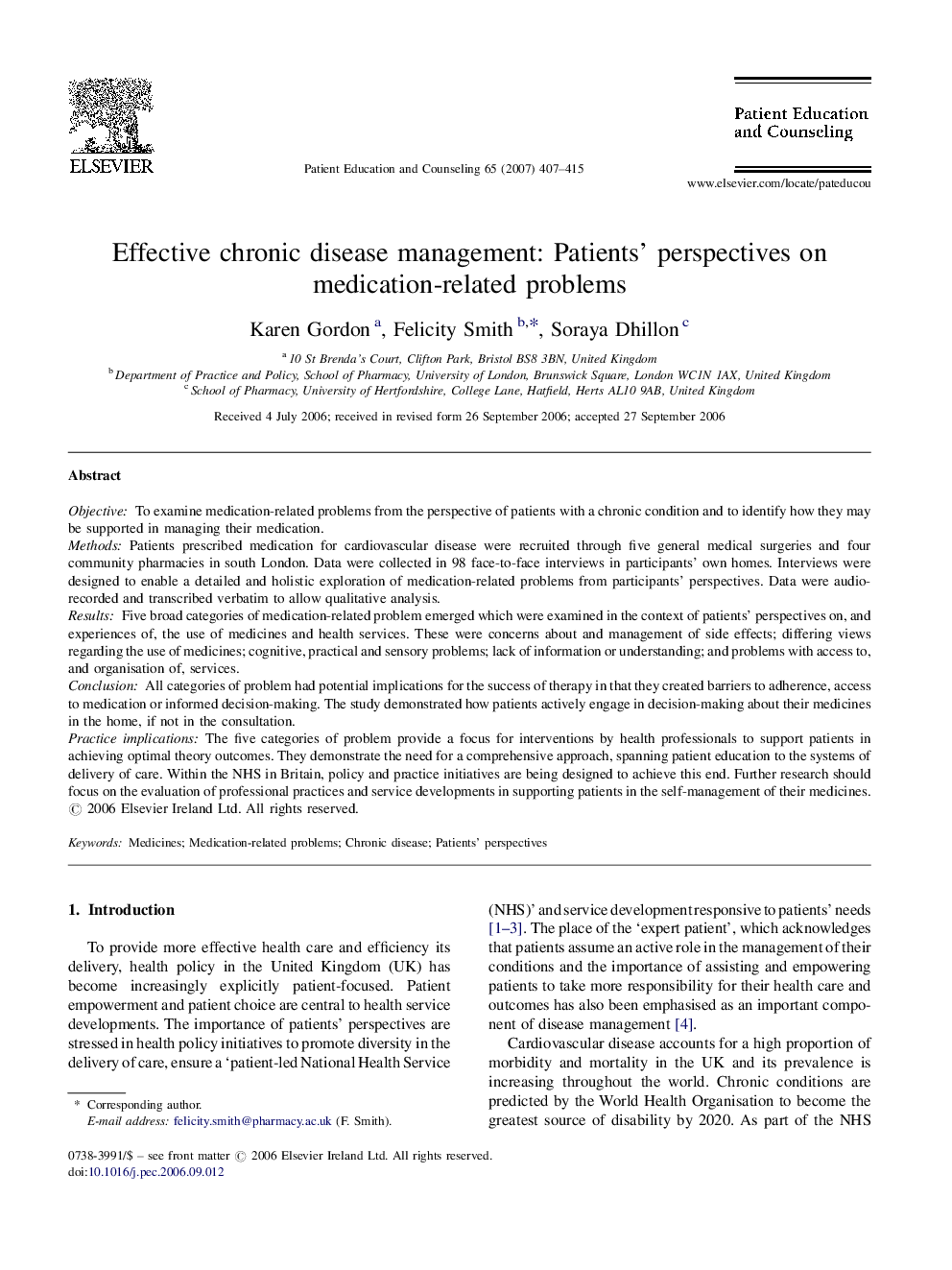| کد مقاله | کد نشریه | سال انتشار | مقاله انگلیسی | نسخه تمام متن |
|---|---|---|---|---|
| 3815302 | 1246070 | 2007 | 9 صفحه PDF | دانلود رایگان |

ObjectiveTo examine medication-related problems from the perspective of patients with a chronic condition and to identify how they may be supported in managing their medication.MethodsPatients prescribed medication for cardiovascular disease were recruited through five general medical surgeries and four community pharmacies in south London. Data were collected in 98 face-to-face interviews in participants’ own homes. Interviews were designed to enable a detailed and holistic exploration of medication-related problems from participants’ perspectives. Data were audio-recorded and transcribed verbatim to allow qualitative analysis.ResultsFive broad categories of medication-related problem emerged which were examined in the context of patients’ perspectives on, and experiences of, the use of medicines and health services. These were concerns about and management of side effects; differing views regarding the use of medicines; cognitive, practical and sensory problems; lack of information or understanding; and problems with access to, and organisation of, services.ConclusionAll categories of problem had potential implications for the success of therapy in that they created barriers to adherence, access to medication or informed decision-making. The study demonstrated how patients actively engage in decision-making about their medicines in the home, if not in the consultation.Practice implicationsThe five categories of problem provide a focus for interventions by health professionals to support patients in achieving optimal theory outcomes. They demonstrate the need for a comprehensive approach, spanning patient education to the systems of delivery of care. Within the NHS in Britain, policy and practice initiatives are being designed to achieve this end. Further research should focus on the evaluation of professional practices and service developments in supporting patients in the self-management of their medicines.
Journal: Patient Education and Counseling - Volume 65, Issue 3, March 2007, Pages 407–415